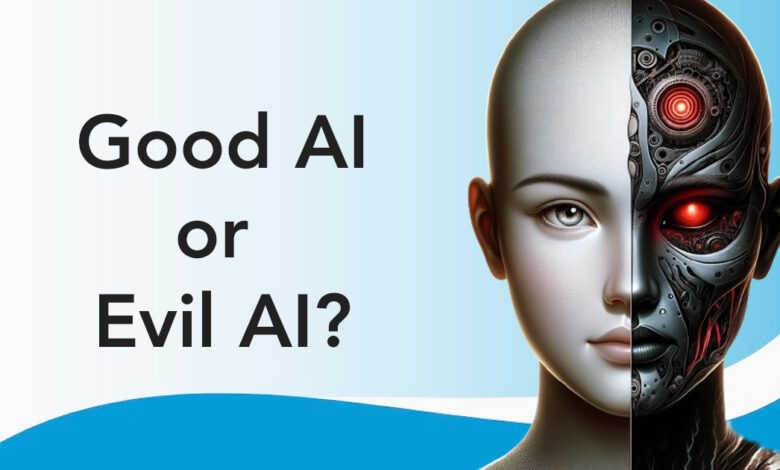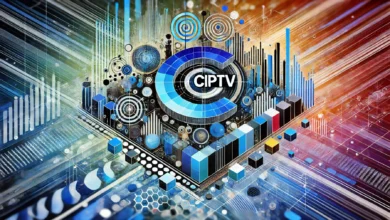The Good AI: Revolutionizing the Future Responsibly

Introduction: Understanding “The Good AI”
Artificial Intelligence good ai has emerged as a transformative force in the modern world, touching nearly every aspect of human life. Defined as the simulation of human intelligence by machines, AI encompasses technologies capable of learning, reasoning, and problem-solving. From its conceptual roots in the mid-20th century to the sophisticated systems we have today, AI has become an indispensable tool for innovation.
But what sets “The Good AI” apart? This term refers to AI systems designed with a focus on ethical considerations, societal benefit, and the responsible use of technology. Good AI prioritizes the betterment of humanity, emphasizing fairness, transparency, and accountability. As AI continues to evolve, ensuring it aligns with these principles becomes critical to fostering trust and maximizing its potential.
Applications of Good AI in Everyday Life
Healthcare
AI is revolutionizing healthcare in unprecedented ways. From early diagnosis of diseases to personalized treatment plans, AI-powered systems enable faster and more accurate medical decisions. For example, AI algorithms can analyze imaging data to detect conditions such as cancer or heart disease at stages when they are most treatable. Additionally, AI-driven tools like wearable health monitors provide real-time data, empowering individuals to take charge of their well-being.
Telemedicine is another area where AI excels. Virtual assistants and chatbots, powered by natural language processing, streamline patient interactions and reduce the burden on healthcare professionals. Moreover, AI accelerates drug discovery by analyzing massive datasets to identify potential candidates, significantly shortening the development timeline. By integrating AI responsibly, healthcare systems can achieve better outcomes while reducing costs.
Education

Education is undergoing a transformative shift with the integration of AI. Personalized learning platforms utilize AI to adapt educational content to individual student needs, fostering engagement and understanding. For instance, an AI-powered system can identify areas where a student struggles and provide tailored resources to help them improve.
AI also bridges gaps in access to quality education. Virtual classrooms and AI tutors make learning accessible to students in remote or underserved areas. Furthermore, AI tools can analyze data to predict student performance and recommend interventions, ensuring no learner is left behind. By democratizing education, Good AI holds the potential to create a more equitable world.
Environment
In the fight against climate change, AI serves as a powerful ally. By analyzing environmental data, AI models can predict weather patterns, monitor deforestation, and track wildlife populations. This information enables organizations to take proactive measures to protect ecosystems and mitigate environmental damage.
AI also optimizes resource management. Smart grids powered by AI enhance energy efficiency, reducing waste and lowering carbon footprints. Similarly, AI-driven agricultural systems improve crop yields while minimizing the use of water and pesticides. With its ability to address environmental challenges effectively, Good AI plays a crucial role in preserving the planet for future generations.
Business and Economy
Businesses leverage AI to enhance productivity and innovation. Automated systems streamline operations, enabling companies to allocate resources more efficiently. For instance, AI-powered customer service solutions reduce response times while improving user experiences.
AI fosters entrepreneurship by democratizing access to tools and insights previously available only to large corporations. Startups can use AI for market analysis, product development, and customer targeting, leveling the playing field. As businesses embrace Good AI, they not only gain a competitive edge but also contribute to economic growth and job creation.
Ethical Challenges and Solutions for Good AI
Bias and Fairness
AI systems often inherit biases from their training data, which can lead to unfair outcomes. For example, biased algorithms in hiring processes may disadvantage certain demographics. Recognizing this challenge, developers are working to eliminate bias through diverse datasets and rigorous testing protocols. Promoting inclusivity in AI design ensures systems benefit all individuals equally.
Data Privacy and Security
With the rise of AI, concerns about data privacy and security have intensified. AI relies on vast amounts of data, raising questions about how information is collected, stored, and used. To address these concerns, organizations are implementing robust encryption methods and strict compliance with privacy regulations. Educating users about data protection also fosters trust in AI technologies.
Transparency and Accountability
Transparency is essential for building confidence in AI systems. Users should understand how algorithms make decisions, especially in critical areas like healthcare and criminal justice. Developers can achieve this by creating explainable AI models and providing clear documentation. Accountability mechanisms, such as independent audits, further ensure that AI operates ethically and responsibly.
The Roadmap to a Responsible AI Future
Collaboration Across Sectors
Creating Good AI requires collaboration among governments, private sectors, and academia. Policymakers must establish global frameworks that prioritize ethical standards, while businesses and researchers focus on innovation. By working together, stakeholders can ensure AI benefits humanity.
Investing in Research and Development
Funding research is crucial for advancing responsible AI technologies. Governments and private organizations should support interdisciplinary approaches that combine technical expertise with ethical considerations. Initiatives such as AI ethics labs and public-private partnerships can drive progress in this field.
Educating the Public
Public awareness is key to the success of Good AI. Efforts to demystify AI help individuals understand its capabilities and limitations. Workshops, online courses, and community programs empower people to make informed decisions about AI use. Promoting transparency and education builds trust and encourages responsible adoption.
Conclusion: Embracing the Good AI
AI holds immense potential to transform society, but its impact depends on how we harness it. By prioritizing ethical principles, fostering collaboration, and addressing challenges, we can create AI systems that truly serve humanity. Embracing Good AI means embracing a future where technology uplifts lives responsibly and sustainably. Together, we can build a world where AI empowers progress while safeguarding human values.
FAQs
- What is “The Good AI”? “
- The Good AI” refers to artificial intelligence systems designed to prioritize ethical considerations, societal benefit, and responsible innovation.
- How can AI improve healthcare?
- AI enhances healthcare through early diagnosis, personalized treatments, telemedicine, and accelerated drug discovery.
- What are the ethical concerns in AI development?
- Ethical concerns include bias, data privacy, and the need for transparency and accountability in AI systems.
- How does AI contribute to environmental sustainability?
- AI aids environmental efforts by predicting weather patterns, monitoring ecosystems, optimizing resource use, and reducing waste.
- What steps can individuals take to support responsible AI use?
- Individuals can educate themselves about AI, advocate for ethical policies, and use AI tools responsibly.
You May Also Read:https://vlpside.com/ciptv/


